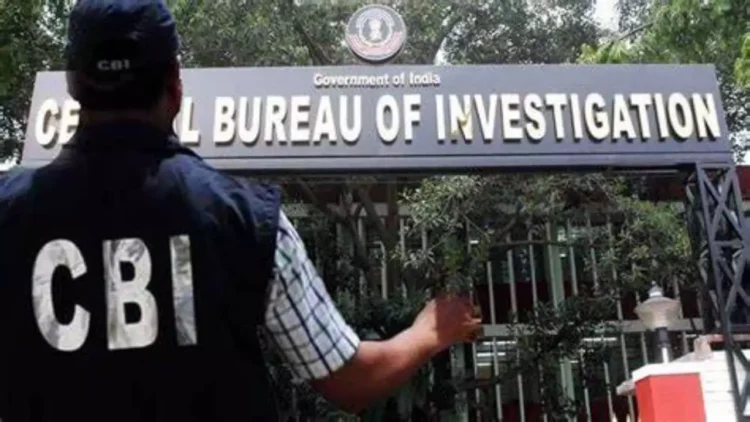The Central Bureau of Investigation (CBI) on Thursday filed a case against the Enforcement Directorate (ED) assistant director Pawan Khatri, UDC Nitesh Khokhar, CEO of Claridges Hotel Vikramaditya Singh, and others for taking bribe in the Delhi liquor policy scam. In a shocking revelation, the CBI has initiated a high-stakes corruption case against an assistant director from the ED over his alleged involvement in a Rs 5 crore bribery scandal. The accused officer, identified as Pawan Khatri, is suspected of aiding liquor magnate Amandeep Dhall in evading legal consequences related to the excise policy scam. This intricate web of corruption also ensnares prominent figures including Deepak Sangwan, Assistant General Manager of Air India, Vikramaditya, CEO of Claridges Hotels and Resorts, chartered accountant Praveen Kumar Vats, Nitesh Kohar, a clerk at the ED, and Birender Pal Singh, Dhall’s father.
Although the accused ED officials were not directly implicated in the ongoing investigation of the excise scam, the saga took a twist during recent searches. Pertinent materials tied to the case were surprisingly seized from their premises, raising questions about their potential connections to the unfolding controversy.
The roots of this complex case trace back to a complaint lodged by the Enforcement Directorate itself. The complaint alleges that Singh had orchestrated a series of payments amounting to a staggering Rs 5 crore. These payments, distributed in tranches of Rs 50 lakh from December 2022 onwards, were purportedly meant to secure favorable outcomes for Dhall in the excise policy case.
The CBI, based on a complaint from the ED, has filed a case against Assistant Director Pawan Khatri of the ED, UDC Nitesh Khokhar from the ED, CEO Vikramaditya of Claridges Hotel, Deepak Sanghwan – AGM of Air India, and other accused. pic.twitter.com/dDyDqQOgYt
— Mohit Singh (@coolindian) August 29, 2023
This disconcerting development has prompted the CBI to formally register the case under sections 120-B of the Indian Penal Code, which pertains to criminal conspiracy, alongside the provisions outlined within the Prevention of Corruption Act. The breadth of this scandal is reflected in the wide range of charges encompassing bribery, conspiracy, and potential abuse of power.
During the initial investigation into the alleged excise scam, the Enforcement Directorate uncovered information hinting at substantial bribery transactions linked to senior agency officials, potentially exerting undue influence on the ongoing case. Acting on this tip, the agency conducted a series of searches on July 4, delving into the premises of the accused and subjecting suspects to intensive questioning. The preliminary findings of these operations provide a glimpse into a world of potential bribery and corruption that threatens to erode public trust in these institutions.
As the CBI probe gathers momentum, the nation awaits the unveiling of truth in this labyrinthine saga. With reputations hanging in the balance and the image of law enforcement agencies at stake, this case serves as a stark reminder of the pressing need for stringent oversight, transparency, and accountability within India’s administrative framework.
As the CBI delves deeper into this convoluted web of intrigue, it has so far confined its actions to the arrest of Pawan Khatri, the Assistant Director of the ED. However, with the magnitude of the scandal and the potential involvement of high-profile figures, more arrests may be on the horizon.




















Comments